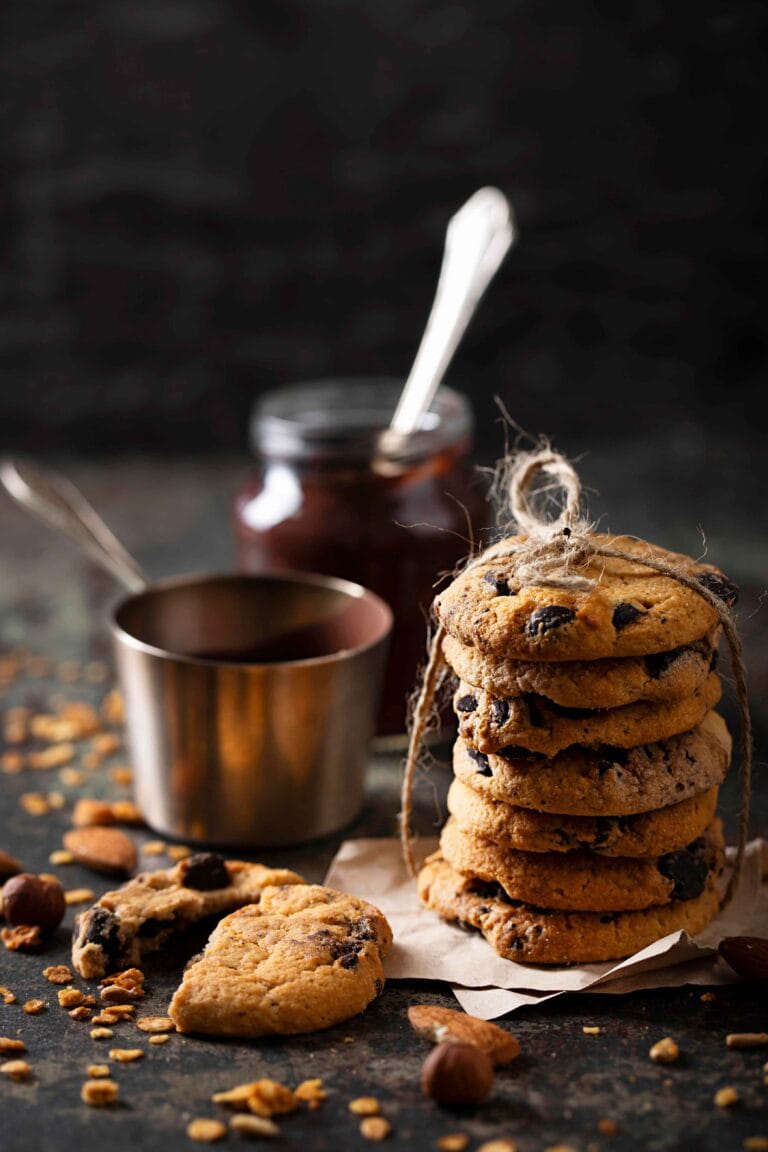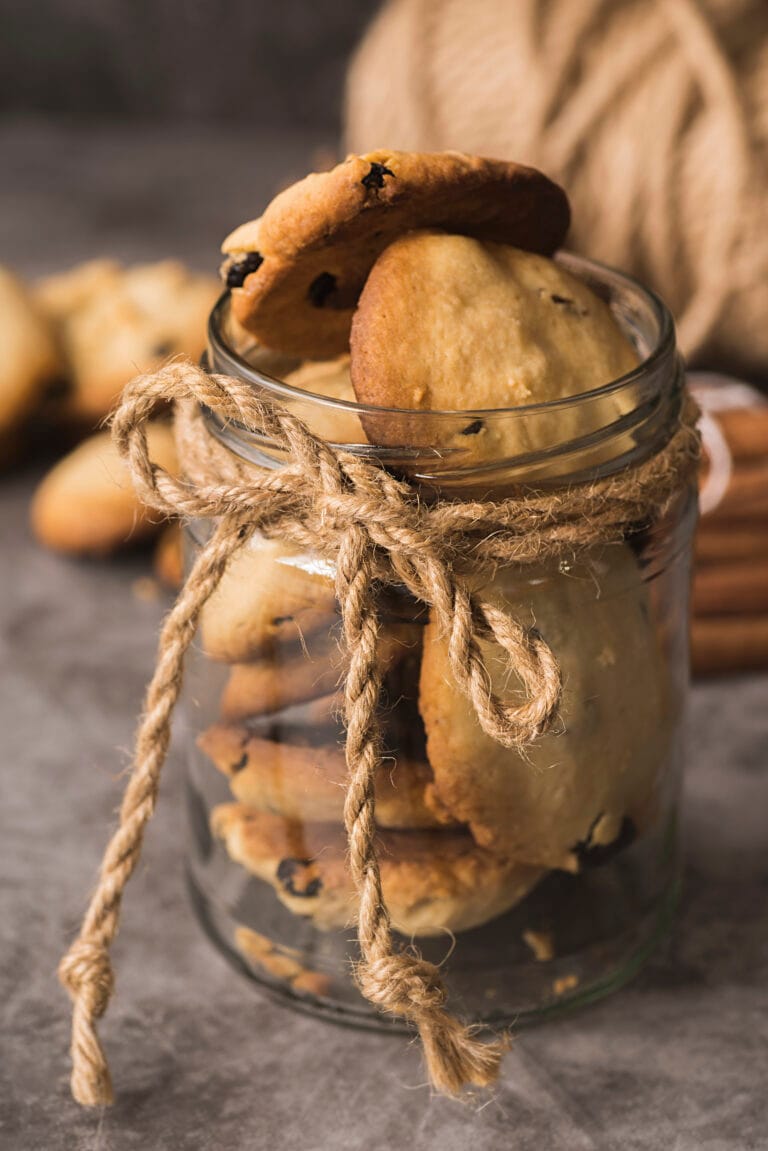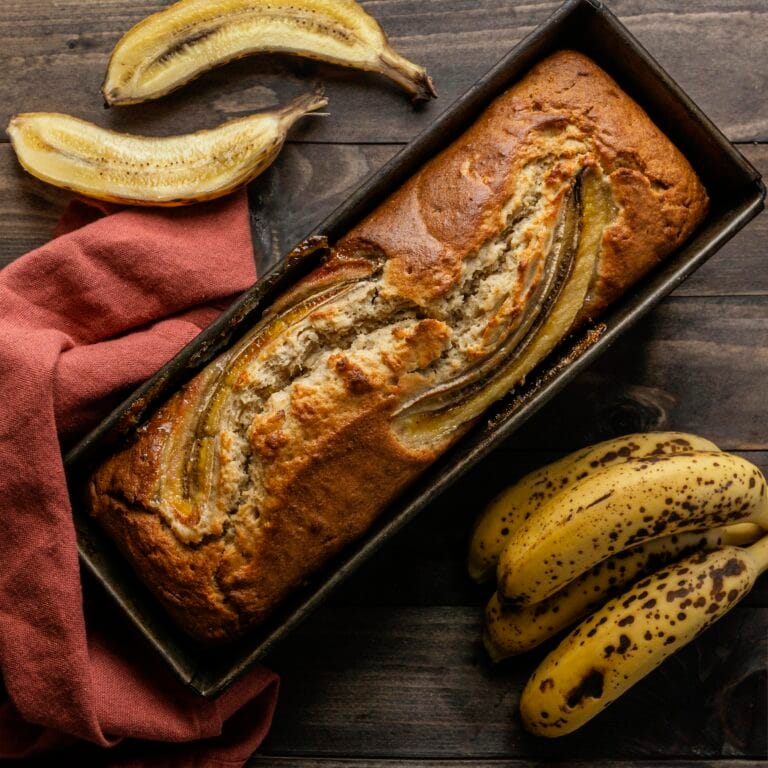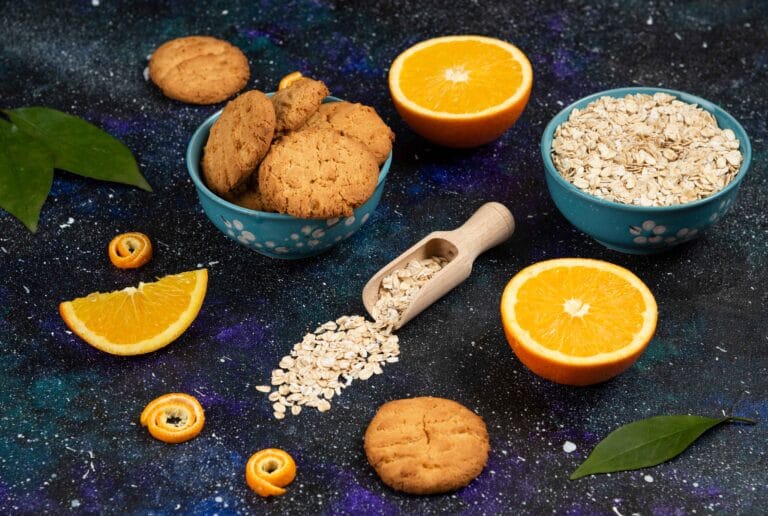What is the Healthiest Type of Cookie?
Cookies are a beloved treat, but finding the healthiest cookies can be challenging. By using whole grains, natural sweeteners, and nutrient-dense ingredients, you can enjoy delicious, guilt-free cookies that fit your dietary goals.
The good news? Cookies can be made significantly healthier by swapping out processed ingredients for nutrient-dense alternatives. In this article, we’ll explore what makes a cookie healthy, discuss the top ingredients to look for, review different types of healthy cookies, and even share tips for creating your own. By the end, you’ll have all the information you need to choose or bake the healthiest type of cookie to satisfy your cravings guilt-free.
Top Ingredients for Healthy Cookies
When aiming to bake or purchase a healthier cookie, the choice of ingredients is paramount. Each component of a healthy cookie contributes to its nutritional value, texture, and taste. Below are some of the most nutritious and beneficial ingredients that elevate the health quotient of cookies.
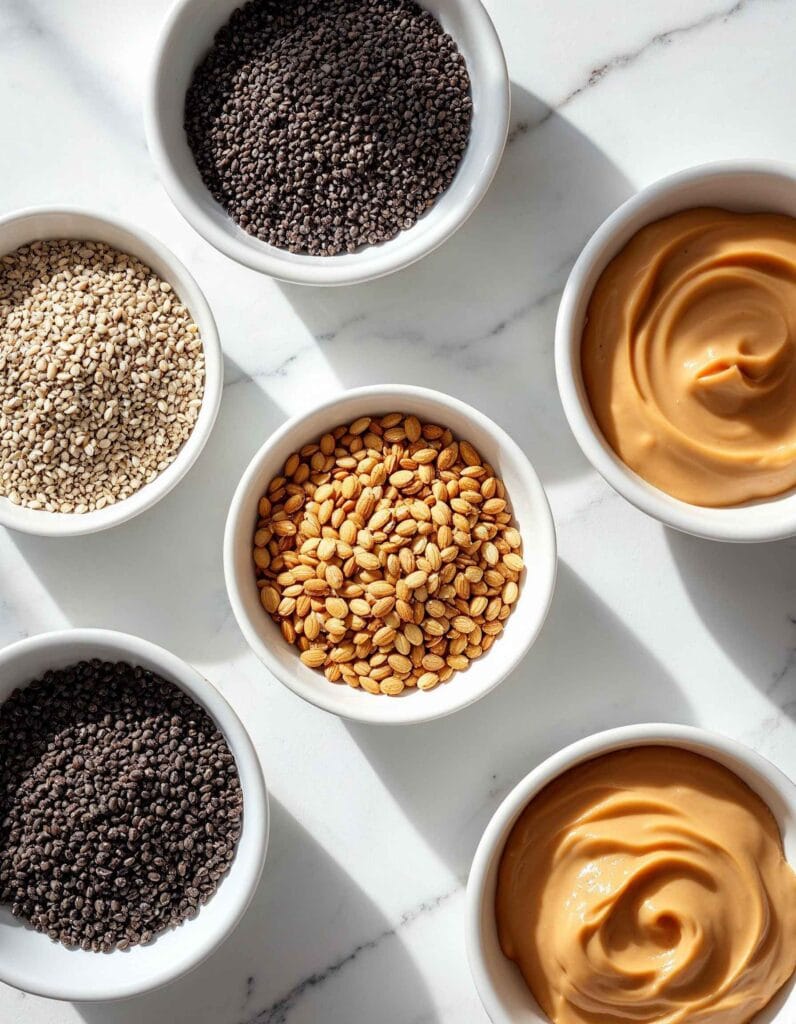
Whole-Grain Flours for Fiber and Nutrients
As discussed earlier, using whole-grain flours is one of the easiest ways to increase the health benefits of cookies. Here’s a closer look at some great flour alternatives:
- Oat Flour: Made by grinding oats into a fine powder, oat flour is rich in soluble fiber, particularly beta-glucan, which can help reduce cholesterol levels and improve heart health. Oat flour also provides a subtle, naturally sweet flavor that pairs well with ingredients like nuts or dried fruit.
- Whole Wheat Flour: This is one of the most accessible whole-grain flours, and it adds both fiber and a deeper, nuttier flavor compared to white flour. Whole wheat flour is a good source of iron, magnesium, and zinc, which are essential for bodily functions.
- Almond Flour: Ideal for those following a gluten-free or keto diet, almond flour is low in carbohydrates and high in healthy fats and protein. It’s packed with vitamin E and magnesium, both of which support skin health and muscle function. Almond flour’s nutty flavor complements cookies with dark chocolate or dried fruits.
These flours boost fiber content, promote better digestion, and help regulate blood sugar levels.
Natural Sweeteners for Lower Glycemic Impact
Refined sugars contribute to weight gain and spikes in blood sugar levels, which can lead to energy crashes. Healthier cookies often use alternative sweeteners that provide a lower glycemic impact while still offering sweetness. Some of the most popular natural sweeteners include:
- Honey: This unrefined sweetener contains antioxidants that can reduce inflammation. Honey also has antibacterial properties and can help soothe sore throats. However, it is still a sugar, so use it in moderation.
- Maple Syrup: Known for its rich, caramel-like flavor, maple syrup contains a variety of minerals such as manganese, zinc, and potassium. These help maintain bone health and support the immune system.
- Coconut Sugar: Derived from the sap of coconut trees, coconut sugar has a lower glycemic index compared to refined sugar, meaning it doesn’t cause the same rapid blood sugar spike. It’s also rich in inulin, a prebiotic fiber that supports gut health.
- Stevia and Erythritol: These sugar substitutes are often used in low-calorie and keto-friendly cookie recipes. Stevia, an all-natural, plant-derived sweetener, provides a sweet taste without the calories, while erythritol is a sugar alcohol with a minimal impact on blood sugar.
By swapping refined sugars for these alternatives, you can indulge in cookies that won’t cause energy crashes or spikes in blood sugar.
Healthy Fats to Replace Butter and Oil
Fats are an essential part of a balanced diet, and when you choose the right ones, they can improve the health benefits of your cookies. Traditional cookie recipes often use butter or margarine, which can contain trans fats or saturated fats. Healthier fats include:
- Coconut Oil: Rich in medium-chain triglycerides (MCTs), coconut oil is metabolized differently from other fats and can provide quick energy. MCTs may also support brain health and weight loss by boosting metabolism.
- Avocado: Packed with heart-healthy monounsaturated fats, avocado is a great alternative to butter in cookies. It adds a creamy texture while lowering the total saturated fat content.
- Nut Butters: Peanut butter, almond butter, or cashew butter not only replace butter but also add protein, healthy fats, and a delicious flavor. Look for natural nut butters without added sugars or hydrogenated oils.
These fat alternatives are nutrient-dense and support overall health while maintaining the rich flavor and texture that makes cookies so irresistible.
Adding Protein to Satisfy Hunger
Cookies don’t just have to be a sugary snack; they can also be a source of protein that helps keep you full and satisfied. Incorporating protein into cookies can help stabilize blood sugar levels and curb hunger between meals. Here are a few ways to boost protein content in your cookies:
- Protein Powder: A simple way to add protein is by incorporating a scoop of your favorite protein powder, whether it’s whey, pea, or plant-based protein. Look for options that are low in sugar and artificial additives.
- Chia Seeds and Flaxseeds: These tiny seeds are packed with fiber, omega-3 fatty acids, and protein. When added to cookies, they help boost both nutrition and texture.
- Nuts: Almonds, walnuts, and cashews are rich in protein and healthy fats. Adding chopped nuts to your cookie dough can create a satisfying crunch and increase the protein content of the cookies.
By using these ingredients, cookies can provide a filling snack that helps support muscle growth and keeps you energized throughout the day.
Fiber-Rich Additions for Digestive Health
Fiber is crucial for maintaining digestive health, and healthy cookies can be an easy way to sneak in more fiber. Some fiber-rich ingredients that work well in cookies include:
- Oats: Oats are an excellent source of soluble fiber, which can help lower cholesterol levels and improve digestion. Oatmeal cookies, for instance, are a classic example of fiber-packed treats.
- Chia Seeds: Chia seeds are not only a good source of protein and healthy fats, but they are also rich in fiber. They absorb water and create a gel-like consistency, which can help cookies retain moisture and improve texture.
- Psyllium Husk: This fiber supplement, which is often used in gluten-free baking, can boost the fiber content of cookies and support gut health.
These additions will help make your cookies more satisfying and promote healthy digestion.
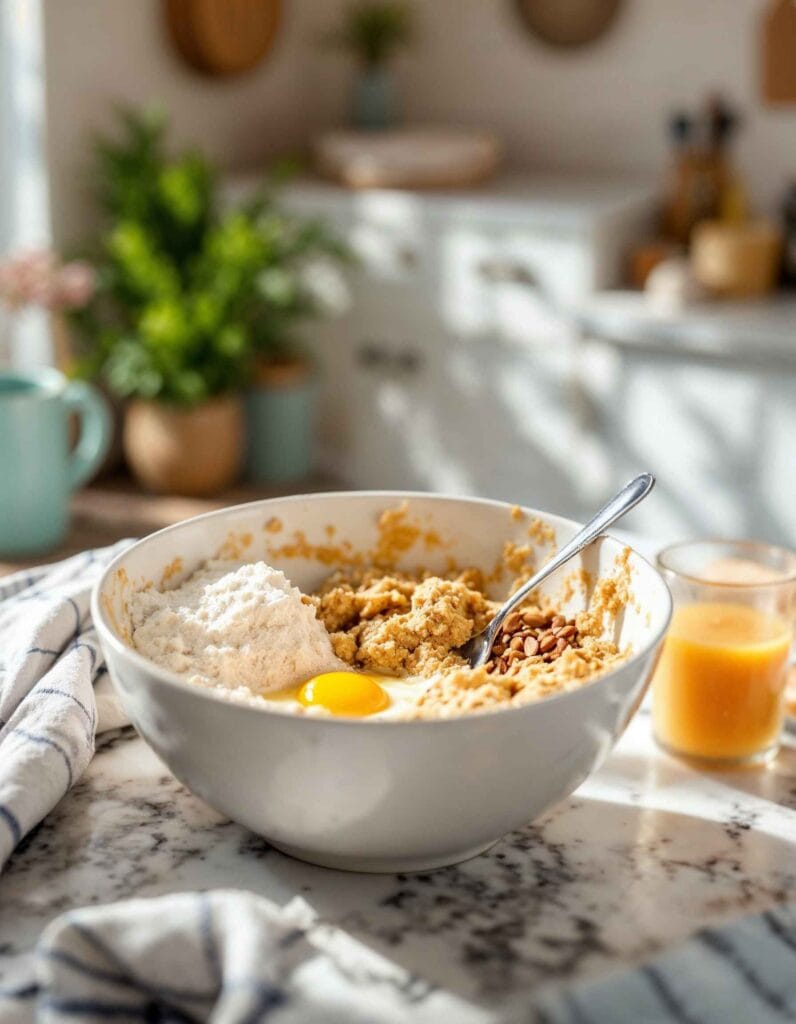
Types of Healthy Cookies
Healthy cookies are not one-size-fits-all; they can cater to various dietary preferences and nutritional needs. From low-sugar options to gluten-free and vegan varieties, there’s a healthy cookie for everyone. Below are some of the most popular types of healthy cookies, along with their key characteristics.
Gluten-Free Cookies
Gluten-free cookies are made without wheat or other grains containing gluten, making them suitable for people with celiac disease or gluten sensitivity. These cookies rely on alternative flours such as:
- Almond Flour: Adds a nutty flavor and is rich in healthy fats and protein.
- Coconut Flour: High in fiber and low in carbohydrates, perfect for low-sugar and gluten-free diets.
- Oat Flour: Certified gluten-free oat flour provides fiber and a mild sweetness.
Examples of gluten-free healthy cookies include flourless peanut butter cookies, almond flour chocolate chip cookies, and coconut macaroons.
Vegan Cookies
Vegan cookies exclude all animal-derived ingredients, such as butter, eggs, and milk. Plant-based alternatives used in these cookies include:
- Flaxseed or Chia Seeds: Mixed with water, these create a gel-like consistency that works as an egg substitute.
- Coconut Oil or Vegan Butter: These replace traditional butter while adding rich flavors.
- Plant-Based Milks: Almond, soy, or oat milk are common substitutes for dairy.
Popular examples of vegan cookies include oatmeal raisin cookies, double chocolate cookies made with avocado, and tahini cookies. Vegan cookies often rely on natural sweeteners like maple syrup or coconut sugar.
High-Protein Cookies
High-protein cookies are designed to satisfy cravings while supporting muscle repair and providing long-lasting energy. These cookies often include ingredients such as:
- Protein Powder: Plant-based or whey protein can be added to cookie dough to significantly increase protein content.
- Peanut Butter or Almond Butter: Nut butters contribute both protein and healthy fats.
- Egg Whites: A lean source of protein often used in non-vegan recipes.
Examples include chocolate chip protein cookies, peanut butter protein cookies, and no-bake protein bites made with oats and protein powder.
Low-Sugar Cookies
For those watching their sugar intake, low-sugar cookies are a fantastic option. These cookies replace refined sugars with natural or low-calorie alternatives such as:
- Stevia or Monk Fruit Sweetener: Both are zero-calorie sweeteners that don’t raise blood sugar levels.
- Unsweetened Applesauce: Adds natural sweetness and moisture to cookie recipes.
- Erythritol: A sugar alcohol that provides sweetness with fewer calories than sugar.
Popular low-sugar cookie options include keto chocolate chip cookies, sugar-free snickerdoodles, and low-carb shortbread cookies.
Keto-Friendly Cookies
Keto cookies are high in healthy fats, moderate in protein, and extremely low in carbohydrates. They are perfect for individuals following a ketogenic diet. These cookies rely on ingredients like:
- Almond Flour and Coconut Flour: Low-carb flours that keep net carbohydrates minimal.
- Erythritol or Stevia: Sweeteners that won’t spike insulin levels.
- Coconut Oil or Butter: Adds the fat content needed for a ketogenic lifestyle.
Examples include keto peanut butter cookies, double chocolate keto cookies, and coconut macaroons.
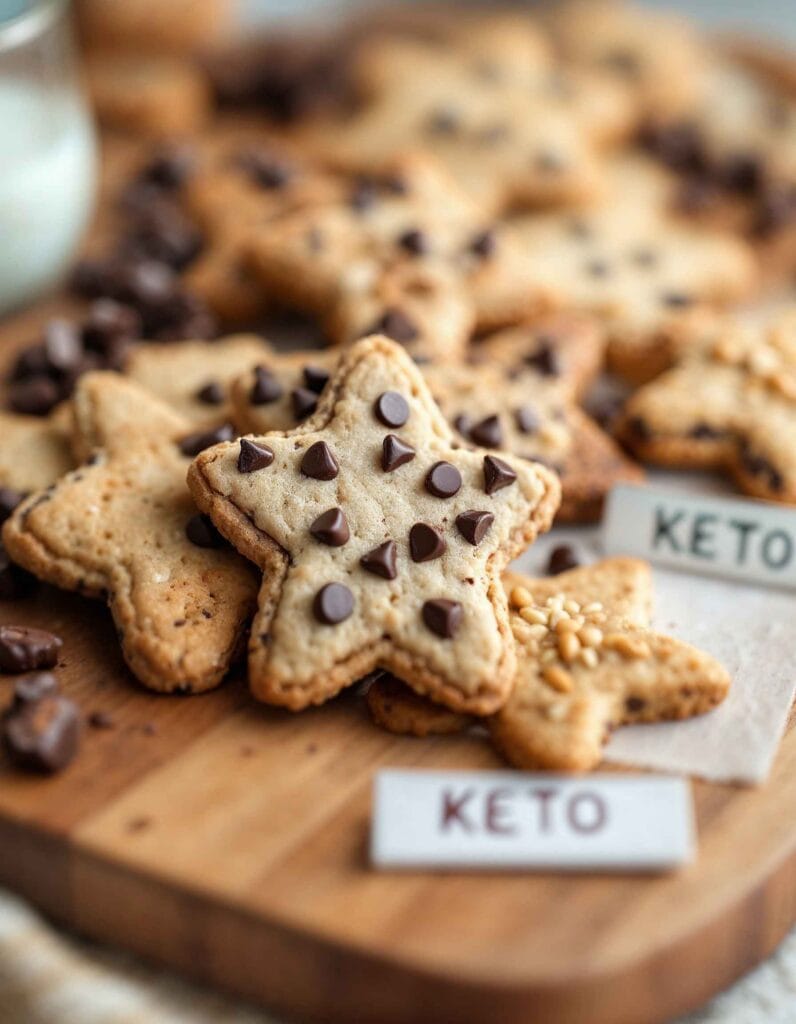
Fiber-Rich Cookies
Fiber-rich cookies aim to improve digestive health and keep you full for longer periods. Ingredients that boost fiber content include:
- Oats: Often used in oatmeal raisin or oatmeal chocolate chip cookies.
- Chia Seeds and Flaxseeds: Add fiber, omega-3 fatty acids, and texture.
- Psyllium Husk: Common in gluten-free baking, psyllium husk increases fiber and supports gut health.
These cookies are great for snacking between meals without spiking blood sugar levels.
Paleo-Friendly Cookies
Paleo cookies follow the principles of the paleo diet, avoiding processed foods, grains, and dairy. Ingredients used in these cookies include:
- Almond Flour or Coconut Flour: Grain-free flours that align with the paleo philosophy.
- Honey or Maple Syrup: Natural sweeteners that fit paleo guidelines.
- Eggs: A natural binding agent rich in protein.
Examples include paleo chocolate chip cookies, cashew butter cookies, and spiced ginger cookies.
Superfood Cookies
Superfood cookies are packed with nutrient-dense ingredients to provide extra vitamins, minerals, and antioxidants. Common superfoods added to these cookies include:
- Dark Chocolate: Rich in antioxidants and flavonoids, supporting heart health.
- Goji Berries: High in vitamin C and other antioxidants.
- Hemp Seeds: Provide a complete protein with all nine essential amino acids.
Examples include matcha green tea cookies, dark chocolate and goji berry cookies, and turmeric-spiced cookies.
These types of cookies allow you to indulge while catering to your dietary needs and boosting your nutrient intake.
How to Make Your Own Healthy Cookies
Making your own healthy cookies at home is one of the best ways to ensure you control the ingredients, tailor the flavors to your liking, and create a truly guilt-free treat. With a few simple substitutions and techniques, you can turn any cookie recipe into a healthier version without compromising on taste or texture. Here’s a step-by-step guide.
Choosing the Right Ingredients
The key to healthy cookies is selecting high-quality, nutrient-dense ingredients. Some tips include:
- Opt for Whole-Grain Flours: Replace all-purpose flour with whole wheat, oat, almond, or coconut flour for added fiber and nutrients.
- Use Natural Sweeteners: Substitute refined sugar with honey, maple syrup, coconut sugar, or mashed fruits like bananas or dates.
- Add Healthy Fats: Replace butter with avocado, coconut oil, or nut butters for a dose of healthy fats.
- Incorporate Nutritional Boosters: Add chia seeds, flaxseeds, or protein powders to elevate the nutritional profile of your cookies.
Choosing these ingredients ensures your cookies are rich in vitamins, minerals, and good-for-you nutrients.
Smart Substitutions for a Healthier Twist
Traditional cookie recipes often rely on unhealthy ingredients. Here’s how to make smart swaps:
- Replace Sugar: Use unsweetened applesauce or mashed bananas to add natural sweetness without refined sugar.
- Switch Butter for Alternatives: Coconut oil, avocado, or Greek yogurt work well as substitutes for butter, reducing saturated fat content.
- Add More Fiber: Incorporate oats, psyllium husk, or ground flaxseeds to boost the fiber content.
- Egg-Free Baking: For vegan options, use flax eggs (1 tablespoon flaxseed + 3 tablespoons water) or aquafaba (chickpea water) as a binding agent.
These substitutions can make your cookies healthier without sacrificing their deliciousness.
Balancing Flavors and Textures
Healthy ingredients can sometimes alter the flavor or texture of cookies. Here are tips to ensure your cookies taste amazing:
- Flavor Enhancers: Add spices like cinnamon, nutmeg, or vanilla extract to amplify the taste.
- Texture Additions: Use chopped nuts, seeds, or dried fruits to create a chewy or crunchy texture.
- Balance Sweetness: Pair natural sweeteners with a pinch of salt or a dash of unsweetened cocoa powder for depth.
Balancing flavors and textures ensures your cookies remain indulgent and satisfying.
Techniques for Healthier Baking
The way you bake cookies also influences their healthiness. Follow these best practices:
- Portion Control: Use a small cookie scoop to ensure uniform portions and manage calorie intake.
- Avoid Overbaking: Healthy cookies can dry out quickly. Keep an eye on them to retain moisture.
- Chill Dough When Needed: Chilling the dough, especially when using whole-grain flours, helps cookies maintain their shape and prevents spreading.
- Experiment with Cooking Methods: Try no-bake cookies or air fryer versions to reduce oil and maintain nutrient integrity.
These techniques can enhance both the appearance and the nutritional value of your cookies.
Recipe Example for Healthy Chocolate Chip Cookies
Here’s a simple and versatile recipe for healthier chocolate chip cookies:
Ingredients:
- 1 cup almond flour (or whole wheat flour for non-gluten-free)
- ½ cup coconut sugar
- ¼ cup coconut oil or avocado oil
- 1 flax egg (1 tablespoon flaxseed meal + 3 tablespoons water)
- 1 teaspoon vanilla extract
- ½ teaspoon baking soda
- ½ teaspoon salt
- ½ cup dark chocolate chips
Instructions:
- Preheat your oven to 350°F (175°C). Line a baking sheet with parchment paper.
- In a small bowl, mix flaxseed meal with water and let it sit for 5 minutes to form a flax egg.
- In a larger bowl, combine almond flour, coconut sugar, baking soda, and salt.
- Stir in the coconut oil, flax egg, and vanilla extract until a dough forms.
- Fold in the dark chocolate chips.
- Scoop tablespoon-sized portions of dough onto the prepared baking sheet.
- Bake for 10-12 minutes, or until the edges are golden brown.
- Cool for a few minutes before transferring to a wire rack.
This recipe is customizable—swap out the chocolate chips for raisins or add chopped nuts for extra flavor.
Benefits of Baking Healthy Cookies at Home
Homemade healthy cookies have several advantages over store-bought options:
- Control Over Ingredients: You can avoid preservatives, artificial additives, and excess sugar.
- Customizable Recipes: Tailor the recipe to your taste and dietary needs, from vegan to keto-friendly options.
- Cost-Effective: Baking at home is often cheaper than buying specialty health cookies.
- Fresher Taste: Freshly baked cookies have superior taste and texture compared to packaged options.
By baking at home, you get to enjoy delicious cookies that meet your health goals.
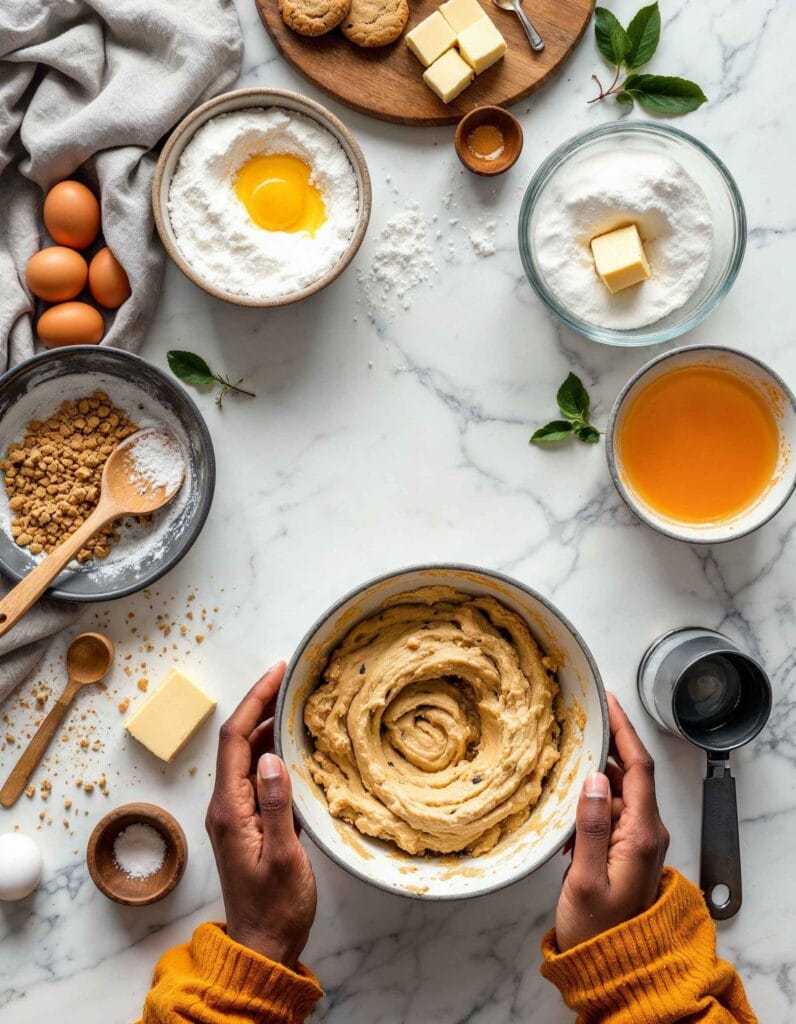
Popular Brands Offering Healthy Cookies
For those who don’t have the time or inclination to bake, many brands now offer healthy cookie options made with natural, high-quality ingredients. Here are some popular choices and what makes them stand out.
Simple Mills
Simple Mills offers a range of cookies made with almond flour and natural sweeteners like coconut sugar. Their cookies are:
- Gluten-free and vegan-friendly.
- Low in sugar compared to traditional cookies.
- Made with clean, recognizable ingredients.
Popular varieties include Chocolate Chip and Toasted Pecan cookies. Simple Mills focuses on minimizing processed ingredients and maximizing nutrition.
Lenny & Larry’s
Known for their high-protein cookies, Lenny & Larry’s products double as a snack and a protein supplement. Key features include:
- Up to 16 grams of protein per cookie.
- Vegan-friendly, with no dairy or eggs.
- Several flavors, including Double Chocolate and Peanut Butter.
These cookies are perfect for fitness enthusiasts or those looking for a filling snack.
Hu Kitchen
Hu Kitchen specializes in paleo-friendly treats that are free from refined sugar, gluten, and dairy. Their cookies are:
- Sweetened with coconut sugar.
- Made with organic and ethically sourced ingredients.
- Perfect for those following a paleo or clean-eating lifestyle.
Their Grain-Free Chocolate Chip Cookies are a fan favorite.
Catalina Crunch
Catalina Crunch caters to low-carb and keto audiences with cookies that are:
- High in fiber and low in sugar.
- Sweetened with monk fruit and stevia.
- Crunchy, satisfying, and available in flavors like Chocolate Vanilla and Peanut Butter.
These cookies fit well into ketogenic diets while offering a nostalgic crunch.
Tate’s Bake Shop Gluten-Free Line
Tate’s Bake Shop is renowned for its crispy, buttery cookies, and their gluten-free line is no exception. These cookies are:
- Made with rice flour and other gluten-free ingredients.
- Crispy and indulgent, with less sugar than many mainstream brands.
- Available in classic flavors like Chocolate Chip.
Tate’s offers a great balance of flavor and dietary accommodations.
FAQs About Healthy Cookies
What is the healthiest cookie I can eat?
The healthiest cookie you can eat depends on your dietary needs and preferences. Generally, cookies made with whole-grain flours, natural sweeteners (like honey or coconut sugar), healthy fats (such as avocado or coconut oil), and nutrient-rich add-ins (like nuts or seeds) are excellent options. Popular examples include oatmeal cookies with flaxseeds, almond flour chocolate chip cookies, and keto-friendly peanut butter cookies.
Do healthy cookies exist?
Yes, healthy cookies exist and are becoming increasingly popular. These cookies use natural, unprocessed ingredients like whole-grain flours, natural sweeteners, and healthy fats, while avoiding refined sugar, trans fats, and artificial additives. Homemade recipes or products from reputable brands like Simple Mills, Hu Kitchen, or Catalina Crunch offer convenient and nutritious options.
Which cookies are good for health?
Cookies that are good for health include those that are:
- High in Fiber: Oatmeal raisin cookies with flaxseeds or chia seeds.
- Low in Sugar: Keto or low-carb cookies sweetened with stevia or erythritol.
- Protein-Packed: Peanut butter protein cookies or cookies made with almond flour.
- Made with Superfoods: Cookies containing dark chocolate, nuts, or goji berries.
The key is to look for cookies with minimal processing and nutrient-dense ingredients.
What cookie has the lowest sugar?
Cookies designed for low-sugar or sugar-free diets typically have the lowest sugar content. Examples include:
No-Sugar-Added Cookies: Variants that use unsweetened applesauce or mashed bananas for sweetness.
Brands like Catalina Crunch and Lenny & Larry’s offer cookies with very low sugar content, while homemade recipes allow you to customize sweetness levels further.
Keto Cookies: Sweetened with stevia, monk fruit, or erythritol.
Sugar-Free Chocolate Chip Cookies: Made with almond flour and sugar substitutes.
Conclusion
The healthiest type of cookie is one made with natural, nutrient-dense ingredients and tailored to your dietary needs. Whether you’re baking at home or purchasing from trusted brands, look for cookies made with whole grains, natural sweeteners, and healthy fats. By choosing options that align with your lifestyle—gluten-free, vegan, keto, or paleo—you can enjoy a satisfying treat without guilt.
So, whether you’re grabbing a protein-packed cookie for post-workout fuel or indulging in a fiber-rich oatmeal cookie, you can feel good knowing your snack contributes to your overall health. Ready to start baking or shopping? With the tips and brands highlighted here, finding the healthiest cookie just got a whole lot easier!


